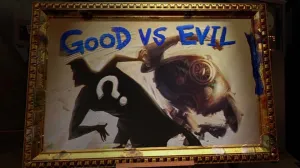For the second time in 15 years, the Writers Guild of America is going on strike. After finding themselves unable to strike a deal with the Alliance of Motion Picture and Television Producers, the WGA has officially ordered its members to put their pencils down and close Final Cut in order to head to the picket line as soon as Tuesday afternoon.
Videos by ComicBook.com
Even after extensive negotiations, talks shut down Monday evening hours ahead of the midnight deadline, with the AMPTP releasing a statement saying it wanted to continue talks. “Negotiations between the AMPTP and the WGA concluded without an agreement today. The AMPTP presented a comprehensive package proposal to the Guild last night which included generous increases in compensation for writers as well as improvements in streaming residuals,” the group said in a statement sent to press.
The statement added that “The AMPTP also indicated to the WGA that it is prepared to improve that offer, but was unwilling to do so because of the magnitude of other proposals still on the table that the Guild continues to insist upon.”
Why is the WGA going on strike?
The main reason is the desire for better pay and residuals in the land of streaming projects. Given this is the first round of serious talks for a new agreement since streaming platforms became the new norm, members of the writer’s union feel the pay for shows on streaming doesn’t match that of network programming.
According to THR, another sticking point is the WGA’s proposal of minimum staff size and employment window. The trade says the AMPTP is seeking out smaller writing staffs and shorter windows writers could be employed.
What will happened with the WGA on strike?
On the most immediate basis, the strike goes into effect immediately. That means that there will be no writing on WGA-covered projects until a new deal is agreed upon by the two sides. This will inevitably lead to production delays as streamers and studios are unable to film shows and films without scripts.
During the last strike, Hollywood was virtually shut down for the better part of three months, forcing many networks to either delay or shorten the seasons of most shows on the air at the time. In lieu of scripted programming, most networks and channels opted to produce reality television and unscripted fare, programming that isn’t covered by WGA writers.








